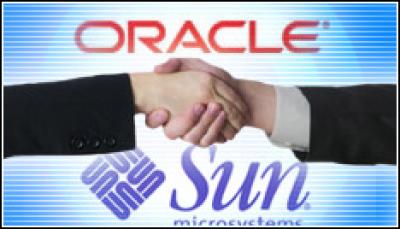Oracle Sun Deal Should Escape Antitrust Issues

If IBM had acquired Sun it could have led to a host of troubling government antitrust issues, but Oracle’s $7.4 billion (£5.1bn) deal to acquire Sun is not likely to raise many antitrust concerns
Since Oracle has far fewer overlapping services with Sun than does IBM, the Oracle-Sun deal should cause little stir among government regulators.
“I don’t think there are any regulatory concerns here,” said analyst Jack Gold of J. Gold and Associates.
The offer came weeks after a reported deal between IBM and Sun Microsystems, for $6.5 billion (£4.5bn), collapsed. The deal would have given IBM significant market share in the areas of enterprise server hardware and software, as well helping IBM make major inroads into the data storage, government systems and telecommunications markets.
In addition to IBM having offered less for Sun than Oracle did, significant antitrust issues could have plagued the deal and rumors persisted that IBM refused to fully commit to the transaction because of those concerns.
Gold went so far in his analysis of the Oracle-Sun deal as to predict that Oracle would eventually sell off Sun’s hardware business and focus on its control of Java.
“We believe that Oracle will not stay in the hardware business very long. Indeed, we would expect Oracle to take the software assets (Java, Solaris), perhaps keep some key hardware subsystems (networked storage—an increasingly important market) and phase out or sell off the commodity hardware business (perhaps to IBM or HP),” Gold wrote in an advisory.
As for MySQL, Sun’s database offering that does compete with Oracle, Gold was emphatic.
“It’s gone,” he said. “Maybe Oracle will just throw the code out there. From Oracle’s perspective, through acquisition of Sun it gets to control Java and the ability to kill off an imminent threat to its database hegemony in the MySQL open-source database.”
Despite the lack of antitrust issues, Gold said the losers in the deal are likely end users who can “expect higher prices for software and fewer choices. Open source is an ugly word at Oracle.”